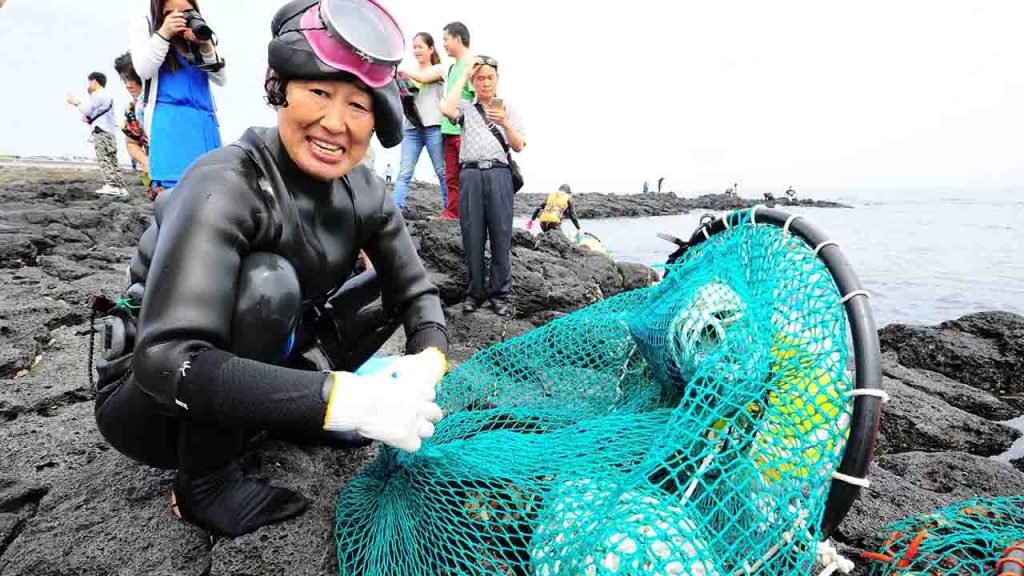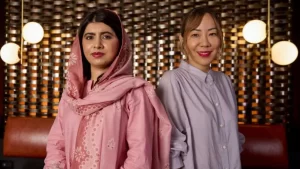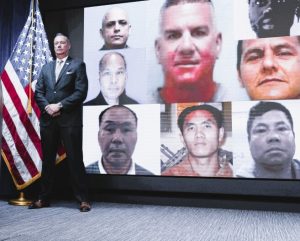
What if someone told you that mermaids were real? Forget the mythical fish tails; we’re talking about women capable of holding their breath for minutes at a time, diving deep into the ocean hundreds of times a day. These remarkable individuals are the haenyeo divers of South Korea, a community of women from Jeju Island who have been free-diving without oxygen to harvest seafood for centuries.
Today, however, this ancient tradition faces an uncertain future. Most haenyeo are now in their 60s, 70s, and 80s, and fewer younger women are taking up this demanding profession. The changing environment of the ocean also poses a significant threat to their way of life. Recognizing the urgency of their story, filmmaker Sue Kim teamed up with Malala Yousafzai, the renowned advocate for female education and Nobel Peace Prize winner, to produce The Last of the Sea Women, a documentary highlighting the haenyeo’s legacy.
Kim first encountered the haenyeo as a child while visiting South Korea, where their boldness and vibrancy captivated her. “They were so incredibly confident and loud, fighting and laughing,” Kim recalls. “I fell in love with their energy and the idea of Korean womanhood they represented.”
When Yousafzai learned about the haenyeo, she was shocked by how few people knew of their existence. As a producer of the film, she felt compelled to amplify their story, particularly as the haenyeo face the possibility of being the last generation to carry on this tradition. Kim explains, “About ten years ago, I realized we needed to document their story while they were still here to share it in their own words.”
The film captures the intense daily routines of the haenyeo during the harvest season. Rising at 6 AM, they dive repeatedly—holding their breath for several minutes at a time and completing between 100 and 300 dives in a session. Their physically demanding work continues for hours, with additional time spent shelling and preparing their catch. The fitness level required for such labor is staggering.
Historically, the haenyeo took on this role partly due to the absence of men, many of whom lost their lives while fishing at sea. As the community adapted, women gradually assumed the responsibility of harvesting seafood, and this shift established a unique tradition.
Despite its significance, Kim faced challenges in gaining access to the haenyeo communities, which are typically insular and rural. With the help of a researcher familiar with NGOs and local contacts, she spent two weeks building trust with the haenyeo. “They were eager to discuss their struggles and the changes they were experiencing,” Kim noted. “They wanted their stories told without pity or stereotypes.”
Instead of perpetuating the “sad grandma trope,” Kim focused on showcasing the haenyeo’s strength and empowerment. “I promised to depict them as heroes,” she explains, which helped foster a familial bond during filming.

However, the haenyeo’s profession is fraught with danger. There is no insurance available for their work, which is risky by nature. Additionally, global warming poses serious threats to their livelihoods, leading to dwindling marine life and the need for deeper dives. Much of the film also highlights their protests against the radioactive water being released from Japan’s Fukushima plant, a contentious issue given the proximity of Jeju Island to Japan. One haenyeo, Soon Deok Jang, even took the fight to the UN’s Human Rights Council in Geneva.
Although experts assert that the water release is safe, concerns about its long-term impact remain. The haenyeo adhere to sustainable practices, with regulations in place regarding when and how they can harvest seafood, which helps protect the ecosystem. They believe that by diving without oxygen tanks, they are ensuring a natural balance of marine life.
The younger generation’s reluctance to pursue this demanding career is alarming. Despite a training school established in the early 2000s, only 5% of attendees go on to become haenyeo. Yet, hope remains. The film introduces two young women from a nearby island who have garnered social media followings, showcasing how the flexible hours of the job can accommodate family life. One had to learn to swim at 30 to embark on this path.
Yousafzai finds inspiration in the haenyeo’s collective spirit, drawing parallels to the advocacy efforts of women around the world, including those in Afghanistan. “When a girl watches this documentary, I want her to believe in herself and understand that she can achieve anything,” she says. “And yes, I need to take swimming classes too!”
The Last of the Sea Women will be available on Apple TV+ starting October 11, 2024, offering a poignant look at the strength, resilience, and legacy of South Korea’s haenyeo divers.






